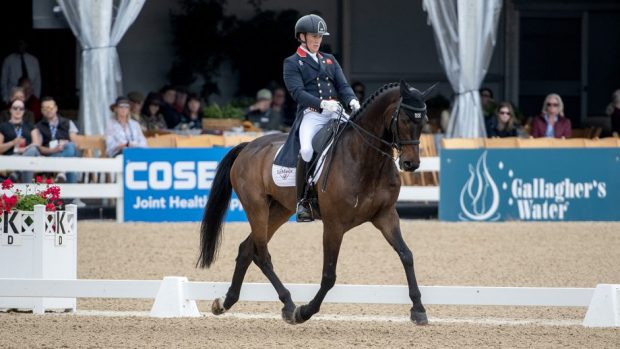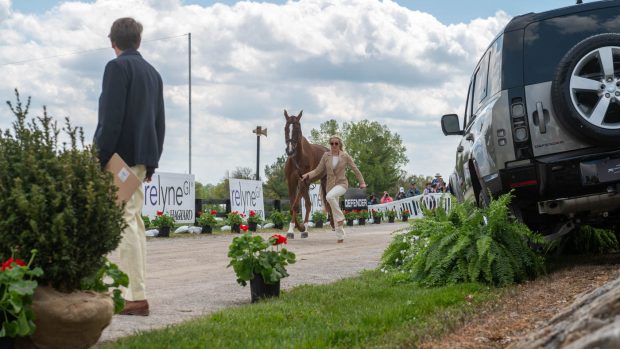A rider who broke her neck when her horse fell over an unfixed cross-country jump has been awarded £60,000 in damages.
Experienced riders Maxine Wright and her husband Phil, from Stoke-on-Trent, were taking lessons in August 2008 prior to a trekking holiday in Spain for her 40th birthday.
But Marmite, her mount at Whitmore Riding School, Shut Lane Head, Newcastle-under-Lyme, fell at a jump made from unweighted oil drums.
Maxine broke her top two vertebrae and was off work for four months. She has been told not to ride again.
“Marmite was on great form, I kicked her on and we started off at a good pace and went over the jump,” said Maxine.
“Her hindlegs clipped the barrel, which moved forward, and we both fell. I knew something was really wrong. I was listed as critical and was in hospital for about a fortnight.”
Her payout follows a series of falls at unfixed portable jumps, including one at a riding club hunter trial (news, 7 April).
British Eventing (BE) issues strict guidelines regarding the securing of portable cross-country fences, but there are no regulations covering unaffiliated courses.
BE’s Mike Etherington-Smith said: “The importance of properly securing portable cross-country fences must not be underestimated and this applies at all levels.
“We pride ourselves on the standards that we have at our affiliated events and we constantly strive to improve safety across the sport.”
He added that BE course-design and building training is open to all.
Equine lawyer Mary Ann Charles of Shaw & Co, who took on Maxine’s case, warned that those erecting unsecured fences leave themselves wide open to the risk of causing serious injury and legal action.
She said: “The jump was inherently dangerous and, for a professional establishment to use such a fence, shows a lack of awareness of the risk.”
The claim was settled out of court last month after insurers for the riding school admitted full liability.
Riding school proprietor Brian Jones said the barrels have been removed.
“The lesson was being taken by a qualified instructor and the rider had jumped the horse before — the accident was just one of those things,” he said.
This news story was first published in the current issue of Horse & Hound (19 May, 2011)




